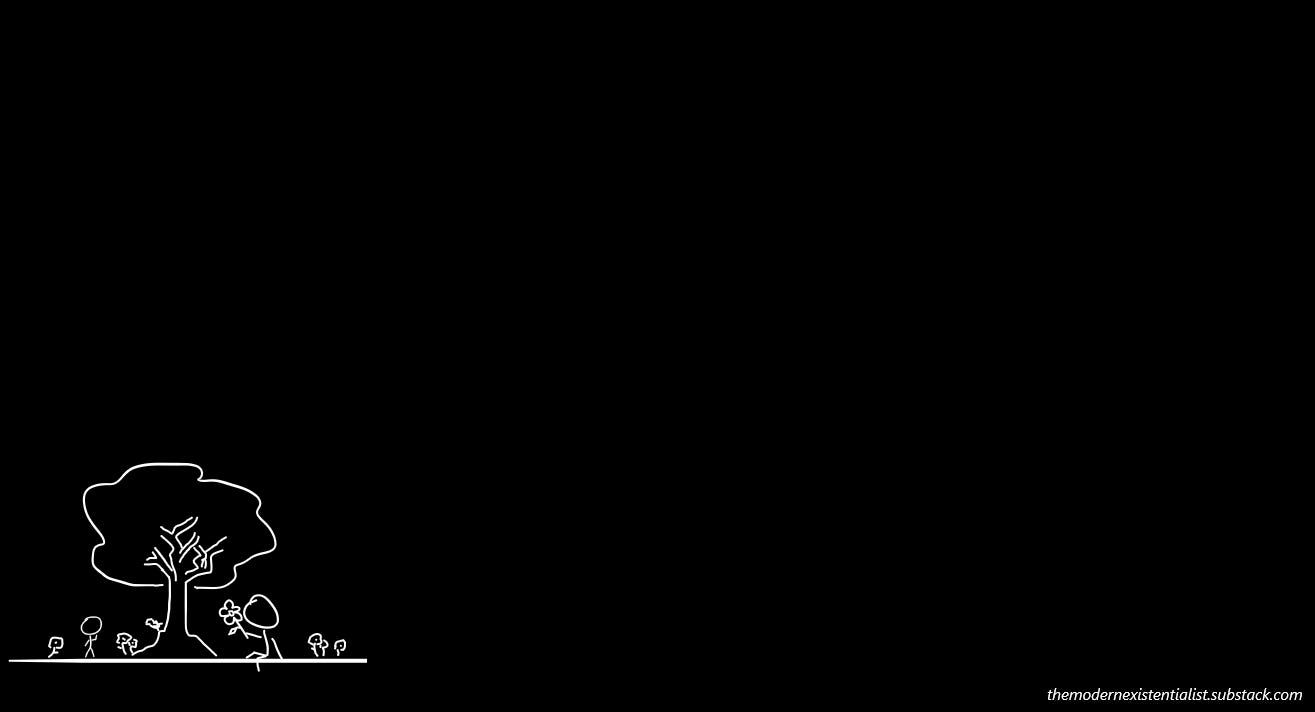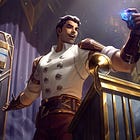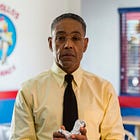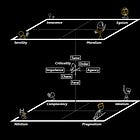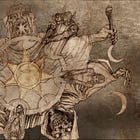2 | COMPLACENCY : the Blameless
Method & Madness | Book II : Archetypical Philosophies
The sub-man, rather than living his life, slips through it instead. He rejects existence because he cannot bear its ambiguity. He wishes to make a hole in being; a place of safety where he can hide from the dangers of freedom.
—S. de Beauvoir (ab. M. Hise)
When we were young, we saw the world in stark black and white. There was Child and Adult—sheep and shepherd; the Innocent, and the wise. There were those who’d fight to defend the Absolute—what’s Good, just, and right.
There were those who protect… and those protected.
As time passed, however—as we grew and learned and worked to achieve—we began to grasp a simple, daunting fact:
That the protected are expected one day to rise and become protectors themselves.
We came to understand that, one day, every Child is expected to grow up—to become someone brave enough to stand against any challenge or danger which would threaten our Eden; our cradle, and our home. And so, as the reality of our situation begins to crystallize, we’re left with a simple, binary choice: two Methods with which we may press on—by which we may rationalize our lives.
We can choose to rise and embrace this destiny—to accept the Agency which we naturally acquire as we grow from boys into men1: the Power to affect and change our world in the way which we see fit. Or, we can choose to cower away and deny our fate—to reject the fact that we’ve grown older, taller, stronger now, and are expected to act in our own self-interest; to work for the betterment of our society if we hope to persist and survive.
The Complacent man is this second man; he who believes that Innocence is freedom: that the Child’s privilege of irresponsibility represents the ultimate liberation of the self. In this way, he convinces himself that it’s Good, normal, and right for Man to strive to remain a perpetual Child—to deny his own Power (his Agency) and remain stagnant; resting forever-in-place.
The Complacent is thus the man who believes that there are two kinds of people in this world:
The meek, and the wicked.
There are those in the world who are Blameless or Innocent—who live out simple lives of humble passivity, and can thus do no wrong because they do nothing at all. And then, there are those who are baleful and greedy—who desire more, and so use their Power to change a world which was already good-enough; who’d destroy the old to create something new, and threaten to bring the walls crashing down.
Eden is the cradle of the Innocent and the Blameless—the two most-threatened when the garden is felled. And what could this Blameless, Complacent man do when faced with the annihilation of home… but rise and acknowledge what he’d dismissed before—to stand and embrace his Agency, and become the very thing he abhors?
When Evil pounds against the stones… the meek have no choice but to rise.
That is what the Complacent believes.
Philosophy: a mindset. a worldview. The way that one chooses to see the world, and thus approach living one’s life.
Αρχή | archí: origin
Τύπος | týpos: form
An Archetypical Philosophy is the logical basis of a person’s attitude, derived from observation of how he-or-she chooses to exist.
As in Beauvoir, wherein the social expectations for boys and girls fork, differing drastically. While boys are encouraged to grow into and embrace their greater Agency, girls are encouraged to do the opposite—growing into and embracing their lesser Agency. Thus, men who deny their Agency are shamed as Complacent (i.e. unmasculine), whereas women who lay claim to their Agency are vilified as Pragmatic (i.e. unfeminine).





